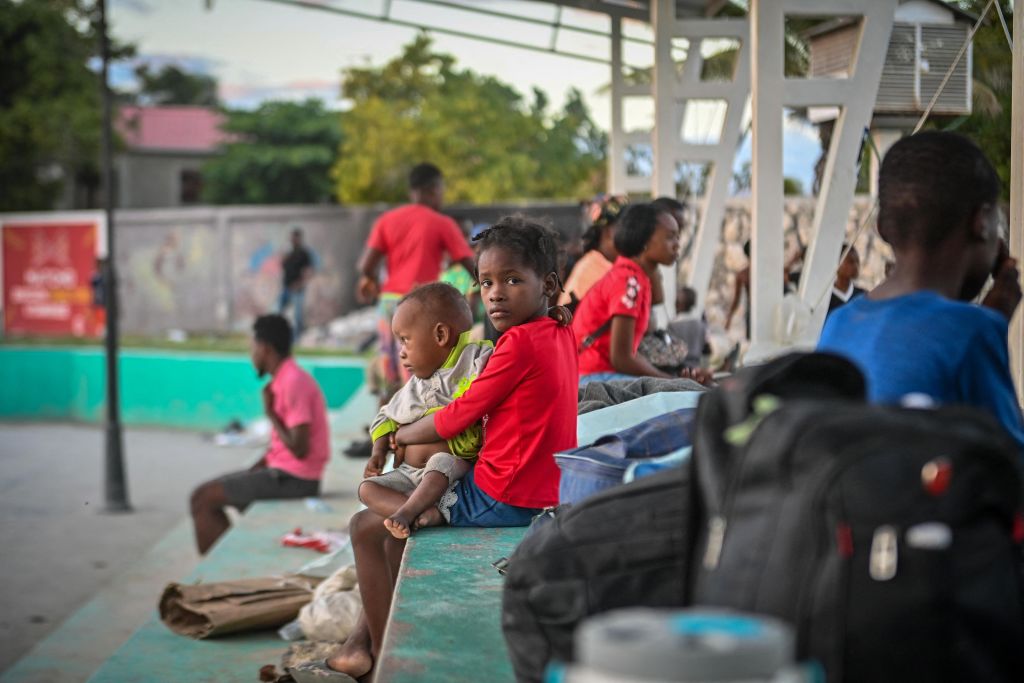PORT-AU-PRINCE—While the conflicts in Ukraine and Israel continue to capture world attention, the international community must not forget about the ongoing crisis in Haiti.
For a year, the diplomatic and political debate on Haiti has centered around whether to send an international force to restore security, and the question of whether the Haitian population genuinely desires such intervention. As the Executive Director of the Center for Analysis and Research on Human Rights (CARDH), a Haitian NGO engaged in the defense of the most vulnerable individuals facing extreme gang violence, I can affirm that many Haitians approve of this international support, based on conversations with everyday Haitians, and my own experience and studies.
The adoption of United Nations Security Council Resolution 2699 on October 2, 2023, authorized a Multinational Security Support (MSS) mission to be led by Kenya with the deployment of 1,000 police officers. Though the mission is currently delayed by Kenya’s High Court, the Haitian population awaits the concrete steps of the MSS’s implementation. However, for it to be effective, the MSS mission to Haiti must not repeat the painful mistakes made by the United Nations Stabilization Mission in Haiti (MINUSTAH) which operated from June 2004 to October 2017, while recognizing that MINUSTAH did make some progress.
The primary goal of the MSS mission is to protect the Haitian population from extreme violence by gangs, particularly vulnerable persons; strengthen the Haitian National Police; conduct joint operations against gangs; and protect key strategic infrastructure. This will help to restore democratic institutions and constitutional order through elections, which have not been held since 2016.
Since the assassination of President Jovenel Moïse in July 2021, Haiti has been embroiled in political crisis and general uncertainty. No agreement has been reached between political actors on holding an election, and gangs have taken control of at least 60% of the capital, Port-au-Prince, and strategic infrastructure. Haitians are suffering from rampant violence and rising poverty and hunger, and more of them are fleeing the country.
The UN resolution, aiming to help unwind the crisis, asks states to act to prevent arms trafficking to Haiti over the next year and advocates for control of Haitian ports and borders in accordance with international human rights law. The resolution recommends measures to ensure discipline among mission personnel and prevent exploitation and sexual abuse as well as the emergence and spread of waterborne diseases. This is a clear reference to the cholera epidemic thought to have been introduced by the Nepalese contingent of MINUSTAH.
Avoiding the mistakes of the past
To succeed and be credible among the Haitian population, the MSS mission must adopt specific and clear procedures to prevent human rights violations, particularly exploitation and sexual abuse, and ensure accountability for transgressions. A thorough analysis of MINUSTAH’s failures is essential to ensure MSS achieves maximum impact and avoid repeating past mistakes.
Here, Haitian civil society groups must play a pivotal role. First, they should be consulted in the development of these processes, and later, they should participate in a monitoring, advisory and accountability process during the operation of MSS. Humanitarian groups should have a place in this process, too, and should coordinate with MSS to ensure access to aid for the most vulnerable populations in high-risk areas.
A real restructuring and strengthening plan for the Haitian National Police is essential to ensure an effective transition of responsibility when the MSS ends. This plan should include a review of the national legal framework governing how the police carries out its functions, vets personnel, designs special units and procures equipment and technology.
A reform plan for the Haitian justice system, plagued by corruption, clientelism and politics, is also necessary. If we can visibly identify gang leaders during episodes of extreme violence in Haiti, what about those who finance them, those involved in arms trafficking, and others? While building up the Haitian National Police’s capacity and arresting gang leaders may be the critical first step to increase security, identifying those who arm and support the gangs and reforming the justice system will be critical to restoring rule of law and a stability in the country.
The UN sanctions regime, introduced by Security Council resolution 2653 in 2022 and renewed this October, will be critical to discourage all potential spoilers as they might continue to plot against the restoration of security, rule of law and democracy in Haiti. Innovative and more effective international support to the Haitian judicial system will be equally critical.
A successful mission must also work to revive Haitian democracy. Ensuring a credible, independent and transparent electoral process with active citizen participation is essential to elect credible leaders who can continue reforms and steer the country toward genuine democracy and a society that respects human rights and fundamental freedoms.
Haitian government officials, the opposition and civil society should fully cooperate with the MSS mission in executing its mandate. In view of the gravity of the situation, now is the time for all to engage in constructive dialogue, setting differences aside and cooperating with CARICOM and the United Nations.
Increased involvement by other member states and international organizations may be necessary to provide the mission with adequate resources and personnel. I fear that the 1,500 envisaged international police officers may be insufficient to ensure effective implementation of the MSS mission mandate.
Today, Haiti needs a paradigm shift and a shared vision towards the restoration of security and democratic institutions. For now, the Multinational Security Support mission to Haiti conveys hope.
By: Gédéon Jean
Gédéon is the executive director of the Center for Analysis and Research on Human Rights (CARDH) and senior fellow at the Jack D. Gordon Institute for Public Policy at Florida International University.
As originally published in Americas Quarterly.
